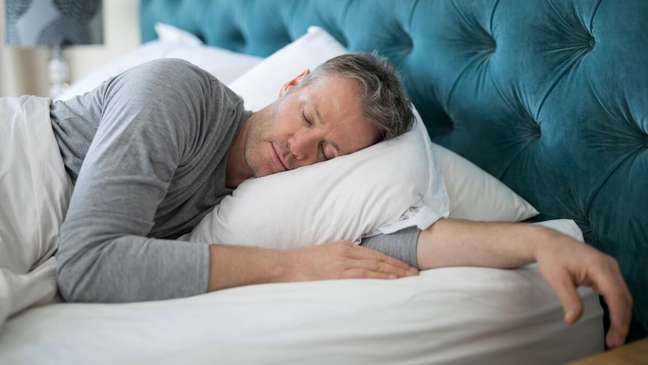The expert explains how sleep quality can affect the scale. Check out the tips for improving your night’s rest

Have you noticed a few extra pounds on the scale? Know that losing weight isn’t just about diet and exercise, you also need quality sleep. According to Dr. Pedro Andrade, specialist in precision medicine, sleep and weight loss are directly linked due to the production of certain hormones, such as leptin, ghrelin and serotonin. When these hormones are in balance, they promote weight loss.
According to the specialist, sleep deprivation is also related to weight gain, as it decreases the action of dopamine in the prefrontal cortex, the area of the brain responsible for making good decisions. This results in a lesser ability to make healthier food choices throughout the day, with a direct impact on balance.
While there is no standard that defines how many hours of sleep each person is recommended, the American Academy of Sleep Medicine recommends seven to nine hours of continuous sleep per night.
“When the patient already has a balanced routine of exercise and food, the improvement in sleep comes as a complement for him to have more health and well-being. And the effects of this lifestyle can lead to balance. It happens, in these cases, as a consequence of this combination “, emphasizes Dr. Pedro.
Quality of sleep and food
As pointed out by the doctor, sleep acts directly on food choices. Likewise, food also interferes with the quality of sleep. “It works like a cycle, you eat well to sleep well. And sleep well to make healthier choices,” he explains.
The specialist warns especially for the consumption of stimulating foods and drinks, especially at night, which can impair the quality of sleep. Animal proteins, cocoa, coffee, green tea and chocolate also belong to this group.
On the other hand, there are some foods that promote sleep quality, such as bananas, oats, chestnuts, avocados, spinach and sunflower seeds. “These foods increase the levels of tryptophan and magnesium in our body, which results in better sleep quality,” he adds.
how to sleep better
Some habits can improve the quality of your rest, three in particular:
1 – Relaxing bath: 20 minutes before sleep arrives, turn the bathroom lights down or completely and play some soothing music to listen to while you shower or take a warm bath. The heat relieves muscle aches and the steam cleans the chest, which is essential if any respiratory allergies are preventing you from getting a good night’s sleep.
2 – Elongation: After about 10 minutes of a warm bath, do some stretching to prevent pain that can arise during sleep. Back pain is one of the most common, but you can cure it by doing some yoga. Another alternative is self-massage to relieve some kind of muscle tension, as well as a hot water bag on the painful areas.
3 – Reading: Get comfortable in bed with a book (no cell phone, as it will stimulate brain activity even more). Monotony is very important in this pre-sleep phase and will cause the eyelids to start closing within minutes. Choose a real book, not a computer or tablet because, like your cell phone, the lights on these devices will keep you awake.
Source: Terra
Benjamin Smith is a fashion journalist and author at Gossipify, known for his coverage of the latest fashion trends and industry insights. He writes about clothing, shoes, accessories, and runway shows, providing in-depth analysis and unique perspectives. He’s respected for his ability to spot emerging designers and trends, and for providing practical fashion advice to readers.







